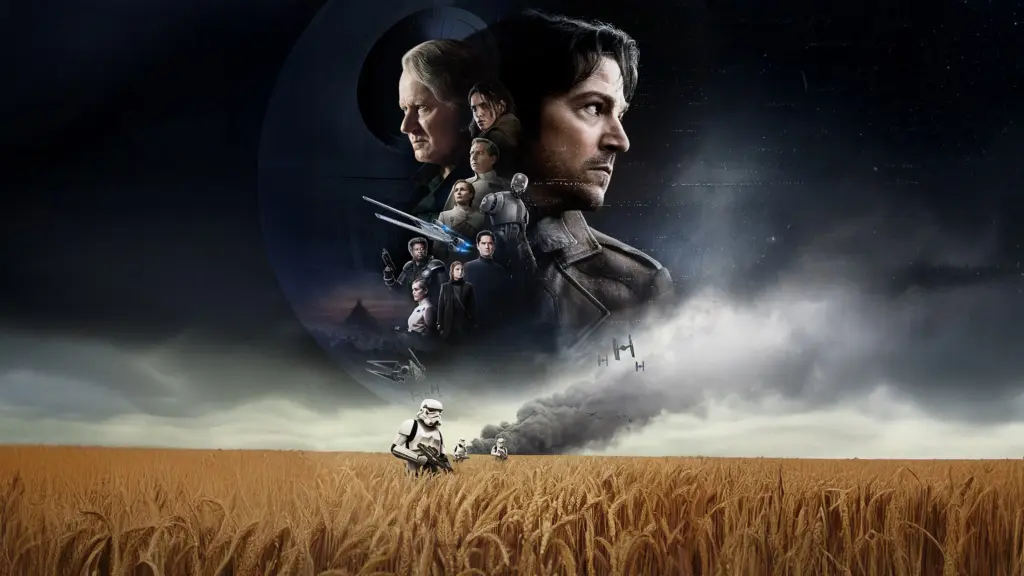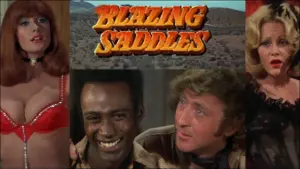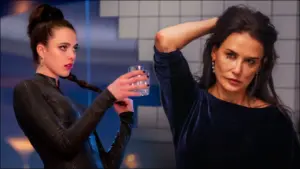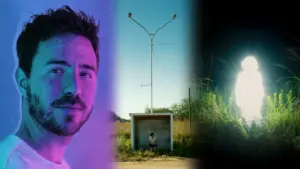It is safe to say that Star Wars changed the world in 1977. It was a fun popcorn movie about a profoundly adult topic – fascism. Darth Vader was a Nazi who kills indiscriminately while Luke, Leia, and Han Solo were the scrappy rebels fueled with hope, spirt, and determination. This is exactly what everybody needed in 1977, and its impact on culture is massive, to put it mildly.
However, since 1977, Star Wars has muddled its original themes. It has become mired in wooden performances, convoluted stories, and something called midi-chlorians. It has wasted a lot of good will flinging light sabers around, forgetting that it is fundamentally a story about good versus evil.
It is therefore a stunning accomplishment when a show can overcome the insanely restrictive canon of a megafranchise like Star Wars to revive the original themes. Andor throws us back into 1977 to relive the glory of Star Wars and its unambiguous message that fascism is always bad. It is an exquisitely great show, on par with other masterpieces such as Breaking Bad.
Andor recently wrapped up its second, and final season and I am still reeling from it. While this review focuses mostly on this last season, every word here applies to the first season as well.
Perhaps what is so wonderful about Andor is that it arrives when there is so much bad Star Wars. The Rise of Skywalker comes to mind here. It is a stupid, poorly plotted misstep, painful to watch, with an unrewarding climax. Most of the Star Wars TV shows are equally weak. The Mandalorian started strong, but once Luke Skywalker showed up, it fizzled. Ahsoka, Obi Wan Kenobi, and The Book of Boba Fett are all mediocre at best.
Of course, Andor’s genesis is the outstanding movie Rogue One. When it came out in 2016, everybody, including myself, was surprised at how well it told the story of stealing the Death Star plans. While many criticized the use of CGI to recreate Peter Cushing’s Moff Tarkin and Carrie Fisher’s Princess Leia, I was not one of them. I thought the CGI creations were impressive. I still get chills when that CGI Leia turns around and says “hope.”
Rogue One‘s director Gareth Edwards and writer Tony Gilroy did the impossible: they took Star Wars back to a potent story of fascists versus freedom. Felicity Jones’s speech about rebellions being built on hope felt like we were right back in the Millenium Falcon with Luke, Leia, and Han Solo. When Andor was announced, I was surprised, as Rogue One seemed like such an outlier. However, I was delighted to see more of Diego Luna, who plays the titular character, Cassian Andor.
Luna was a massively underrated strength of Rogue One. While everybody was ogling the Death Star or screeching about CGI Cushing, Luna soldiered away delivering a precisely intense performance. Luna perfectly captured the morally compromised gaze of a man who has “done terrible things in service of the Rebellion.” Even Luna’s lighter moments, like the character-breaking smile when K2SO smacks him in Rogue One, feels precision-engineered. Luna was an inspired choice for the part, and his performance only improves in Andor.
Another brilliant casting choice was Genevieve O’Reilly returning as Mon Mothma. O’Reilly was great in Rogue One and her moral uneasiness also gets more refined in Andor. Equally great is Ben Mendelsohn returning as Director Orson Krennic, Forest Whitaker as Saw Gerrera, and Stellan Skarsgård as Luthen Rael.
However, the Oscar-worthy performance in Andor is Denise Gough’s Dedra Meero. Gough’s grimacing face and snare-drum taut hairstyle is the embodiment of what noted Nazi hunter Hannah Arendt called the “banality of evil.” Gough is a brilliant modern take on Darth Vader: crisp and clean on the outside, twisted and grotesque on the inside. Gough is especially good when she is “off duty” playing house with her “partner,” Kyle Sollar’s Cyril. Seeing Gough in interviews is jarring, as she is such a warm, cheerful person in real life. In the last episode, Gough’s character winds up exactly where she and all fascists belong.
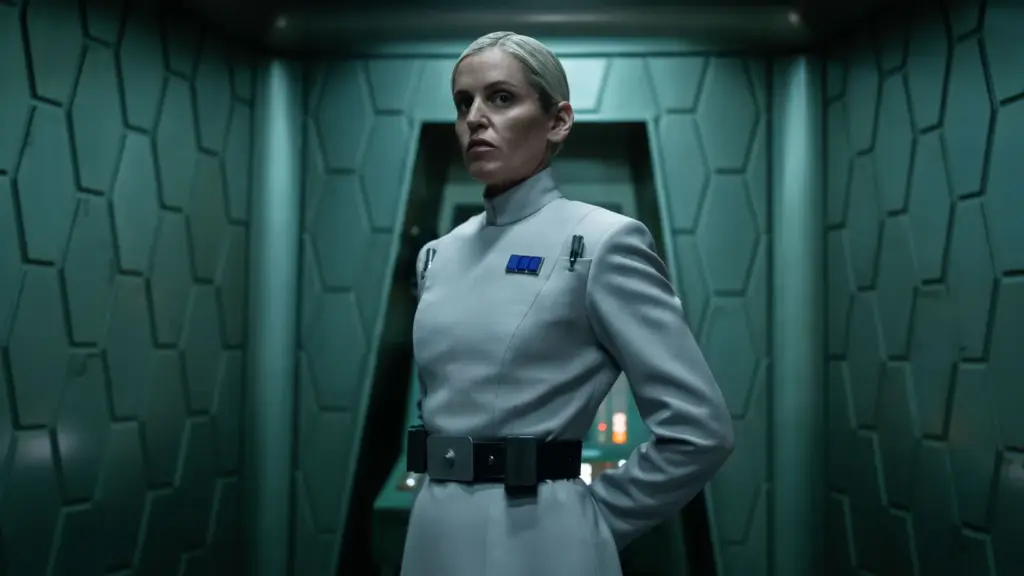
The credit for Andor‘s perfection goes to showrunner and chief writer, Tony Gilroy. Gilroy is a first and foremost a writer. This benefits Andor with a finely textured, well-paced story, which something absent in other Star Wars productions. Gilroy takes the time to let us really get to know each character. The story has subtly, such as the slow-burn dynamics of Mothma, her husband Perrin (Alastair Mackenzie), and rebellion leader Luthen Rael. Moreover, Gilroy is also confident enough as a showrunner to leave the directing duties to the experts, such as Toby Haynes of Sherlock and Black Mirror fame.
Like the Star Wars of 1977, Andor is also an adult story about fascism, with added moral ambiguity and class-struggle themes. Gilroy plots a dense story of an evil empire and its Imperial Security Bureau (ISB) agents methodically oppressing, exploiting, and exterminating working people. Unlike so much other Star Wars, there are no rubbery aliens squawking “messo doen nutten” or similar childish nonsense. There are also no swashbuckling Jedis throwing the Force around and babbling with ghosts.
Since the release of The Phantom Menace in 1999, the Force has become this weird Uri Gellar-like power that comes from beasties in your blood. Star Wars’ reliance on the Force to solve every plot hole is equally irritating. I believe Star Wars works best when the Force is peripheral to the story. Fortunately, Gilroy seems to share this attitude as there are no lightsabers, no Jedi, and barely a mention of the Force throughout the entire Andor series.
I was fortunate to see Star Wars when it was still in theaters in 1978. I remember how big and exciting it felt. I also remember that the bad guys are easy to identify when you observe their behavior. It may start with them buying up social-media sites, but the end is always the same: “you may fire when ready.”
Andor is a return to form for Star Wars, which I can only hope rubs off on whatever comes next.

